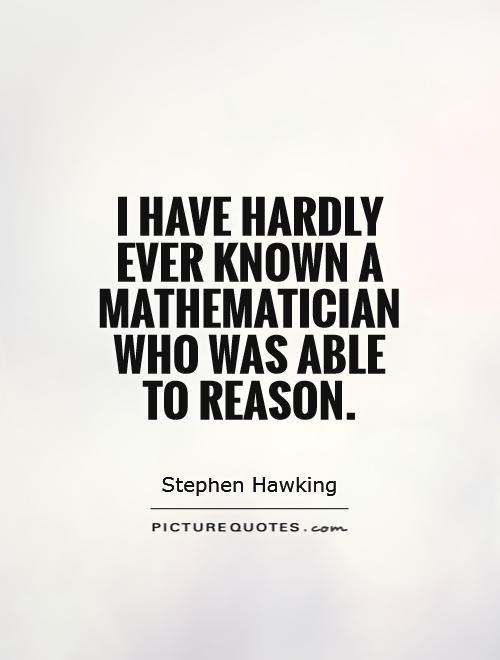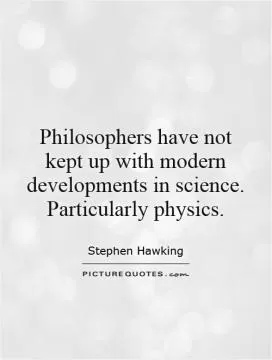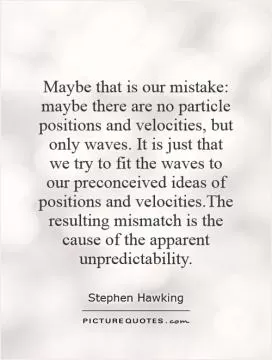I have hardly ever known a mathematician who was able to reason

I have hardly ever known a mathematician who was able to reason
Stephen Hawking was a renowned theoretical physicist and cosmologist who made groundbreaking contributions to our understanding of the universe. Despite his immense success in the field of physics, he often expressed skepticism about the abilities of mathematicians to reason effectively. In his book "Black Holes and Baby Universes and Other Essays," Hawking famously wrote, "I have hardly ever known a mathematician who was able to reason."Hawking's statement may seem surprising, given that mathematics is often considered the language of science and is essential for making sense of the complex theories and equations that underpin our understanding of the natural world. However, it is important to consider the context in which Hawking made this assertion.
One possible interpretation of Hawking's statement is that he was highlighting the limitations of pure mathematical reasoning when it comes to understanding the physical world. While mathematics is a powerful tool for describing and predicting the behavior of physical systems, it is not always sufficient on its own to provide a complete explanation of the underlying mechanisms at work. In other words, mathematics can tell us "what" is happening, but it may not always be able to tell us "why."
Hawking himself was a master at combining mathematical rigor with physical intuition to develop his groundbreaking theories about black holes, the nature of space and time, and the origins of the universe. He was able to use mathematics as a powerful tool to explore the implications of his ideas, but he also recognized the importance of reasoning beyond the equations to develop a deeper understanding of the physical processes at play.












 Friendship Quotes
Friendship Quotes Love Quotes
Love Quotes Life Quotes
Life Quotes Funny Quotes
Funny Quotes Motivational Quotes
Motivational Quotes Inspirational Quotes
Inspirational Quotes